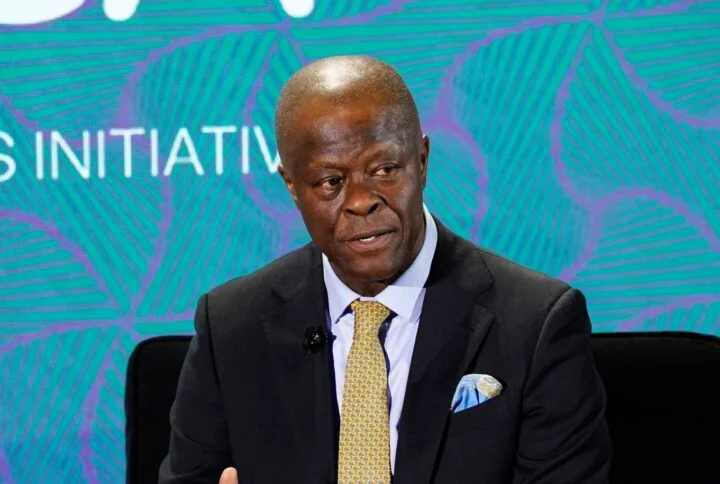Nigeria’s Finance Minister and Economic Coordinator Dr. Wale Edun, has said that the country’s economic climate is showing positive signs of recovery following recent market reforms. Speaking at a Senate Committee session in Abuja, Edun highlighted the tangible benefits of President Tinubu’s bold economic initiatives, particularly the groundbreaking policy of trading crude oil in Naira and the implementation of a unified exchange rate system.
The minister’s presentation to the Senate Committee on Finance revealed that government revenues have increased significantly since the introduction of these reforms. A key breakthrough has been the reduction in Nigeria’s debt-to-GDP ratio, which has improved from 90% to approximately 60%, according to Senate Finance Committee Chairman Sani Musa.
In a significant shift for Africa’s largest economy, the elimination of multiple exchange rate windows has streamlined foreign exchange access for businesses. “Today, those differences have been removed and it’s not difficult to get foreign exchange,” Senator Musa noted, highlighting the positive impact on the business environment.
The innovative policy of selling crude oil in Naira represents a strategic move to reduce pressure on Nigeria’s currency. This approach directly addresses a critical economic challenge, as approximately 65% of the country’s foreign exchange demands traditionally stem from oil importation.
The reform agenda has attracted attention from key stakeholders in Nigeria’s economic sector. Present at the interactive session were prominent figures including Mele Kyari, Group Executive Officer of Nigerian National Petroleum Company Limited (NNPCL), Gbenga Komolafe, Director General of Nigeria Upstream Petroleum Regulatory Commission (NUPRC) and representatives from the Central Bank of Nigeria under Dr. Olayemi Cardoso’s leadership.
Looking ahead, Senator Musa expressed optimism about the medium-term outlook: “Within the next 18 months, we will see a lot of these changes in terms of even the volatility of the market and also the cost of items in the market.” This timeline provides a benchmark for measuring the reforms’ effectiveness in stabilizing prices and market conditions.
The meeting, which later moved into a closed-door session with Senate President Godswill Akpabio, was primarily focused on evaluating the impact of these reforms on the Medium Term Expenditure Framework (MTEF) and the Fiscal Strategy Paper for 2024-2026 fiscal years.
Balancing Growth with Current Hardships
While these economic indicators show promising signs for Nigeria’s long-term economic health, they come against a backdrop of significant challenges for ordinary Nigerians who continue to grapple with high inflation, increased living costs and reduced purchasing power following the fuel subsidy removal and naira devaluation. The success of these reforms will ultimately be judged by their ability to translate macroeconomic improvements into tangible relief for the average Nigerian household, making the next 18 months crucial for demonstrating the practical benefits of these policy changes.

Leave a Reply